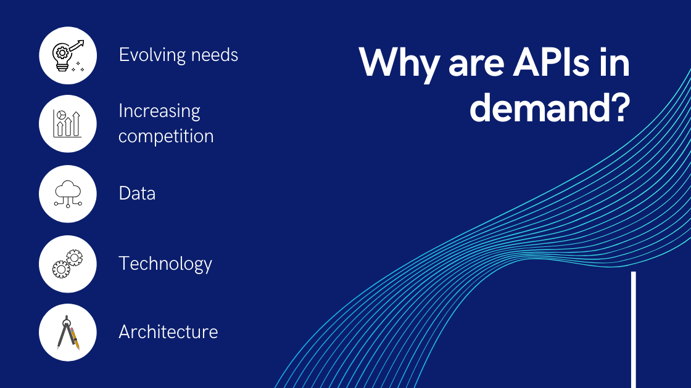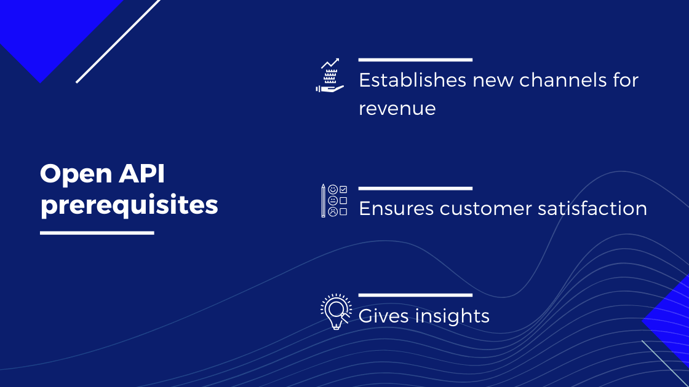Building thriving business partnerships with Open API
Apple and Google recently collaborated to assist in enabling contact tracing and reducing the spread of the virus.
‘To further this cause, Apple and Google will be launching a comprehensive solution that includes application programming interfaces (APIs) and operating system-level technology to assist in enabling contact tracing’ - the blog post by Google explained. ‘First, in May, both companies will release APIs that enable interoperability between Android and iOS devices using apps from public health authorities. These official apps will be available for users to download via their respective app stores - it further revealed.
While such a partnership is just what is needed to strengthen our efforts against the pandemic, it also draws attention to APIs and their roles in making lives easier in this era of synergy and collaborations. I mean, there are examples all around us. Open API and their constant evolution have led to a best-of-breed customer experience that enterprises and customers are absolutely delighted about.
An open API, also termed as a public API, is an application programming interface that permits the owner of an application service to give access to consumers of that service, such as programmers and application developers.
A combination of digital services that take away the stress of seeking individual service providers for everything they need has helped consumers in a big way. A classic case in point? Uber - that did everything from route calculation to sending out receipts with the help of multiple API services offered by other vendors. In no time, it had acquired a market capitalization that made even the best brands in the world go green with envy.
Open API Current Trend
While API services enable an unparalleled user experience to customers, they help companies attain rapid growth in size and revenues. Open API initiative has come-up with specifications around Open API. BFSIs worldwide are now leveraging the power of Open API for a multitude of reasons. Interbank collaborations are becoming increasingly common too.
As the World Fintech Report 2020 by Capgemini rightly points out, “The gap between what customers expect and what traditional banks currently deliver has never been wider, but now is the right time for banks to catch up from front to back-end to offer the best customer experience.”
Singapore's regional bank, DBS Bank for example, supposedly has one of the world's largest API developer platforms and has onboarded over 50 companies already to develop solutions for its customers. With more than 155 APIs across 20+ categories, the bank deploys just about a handful of useful, reusable, and in-demand APIs to achieve data-based transformations and a new high in customer relationships.
Open API - Why?
Enterprises feel an inherent need to rely on popular applications used by customers and business clients to collaborate and offer better technological solutions and services. The need is to be where customers want and need them to be, opening the doors to new collaborative opportunities. APIs seem to be the perfect choice to attain all this and more.

Let’s dive into each of these reasons to get better insights.
Evolving needs - As expectations increase, the modern customer wants a multi-channel experience round the clock and in real-time. Unlike in the past when organizations, particularly from the banking, finance, and insurance sectors, had a more product-oriented approach, the focus has now shifted towards being more customer-centric.
Increasing competition - Start-ups are disrupting the market with services that are fast and competitively priced. Partnering with the right vendors gives enterprises the necessary leeway to get into a bigger market. All they need is an open API architecture that enables a rapid 'plug and play' kind of integration of the many services they offer.
Data - It is what enterprises bank upon. It's always easier to offer the right, customized solutions when you know your customers well. Tying up with multiple vendors allows for a huge data pool that helps them fine-tune their pricing and risk models. Big Data and Artificial Intelligence have enabled companies to process and analyze the constant inflow of data and change it into actionable strategies that win customers.
Technology - Technology is perpetually evolving, which means it is becoming increasingly challenging even for big enterprises to stay abreast of the latest technological innovations all the time. By collaborating with other niche companies through the open API architecture, they find it easier to stay on top of their game.
Architecture - The large, closed, monolith, traditional architecture is not suited for a digital world. Modern companies are quickly moving towards a microservices-based architecture that makes it easier for microservices to communicate with each other via well-defined open API.
What does it mean to have an Open API?
Collaborative support is the need of the hour, especially in the fintech space where banking industry solutions are most sought after. It is however imperative that a successful open API facilitates the establishment of new channels for revenue, ensures customer satisfaction, and gives insights.

Establishes new channels for revenue – This means, end-users to be charged with transaction fees for using the solutions/services, partners to be charged for service/data usage, and revenue-sharing agreement to be devised for partners.
Ensures customer satisfaction - APIs should be customer-centric wherein instead of bombarding customers with products, reveal only those that offer value and satisfaction.
Gives insights - It should capture valuable data in a way that it helps obtain better insights that can, in turn, be used to cross-sell and up-sell for better revenues.
In the recent past, Citi announced six strategic partnerships with leading corporations in Hong Kong to accelerate the development of open Application Programming Interface (API) in the city and to make available easy and speedy banking services in response to consumers' increasingly digital lifestyle.
What do you need to do to embrace Open API?
Understanding the role of API is not enough. You need to ensure that it is carefully monitored and adapted/updated as required. While doing so, care has to be taken that the request and reply interface (used by external parties) or the API format undergoes very minimal changes and continues to support older versions of the format. This will ensure seamless working even when a new version of the API is delivered.
It should be supported by development portals and should enable quick onboarding. Also, there should be standardization in the APIs as developers would be too reluctant to integrate a completely different API every time they want to connect with a new partner.
Open API - A catalyst for growth
Collaborations and partnerships are now an absolute necessity. They are the means to become agile and attain the desired ROI. Those still unsure about the potential of Open API need a substantial rethink.
Anirban Bose, CEO of Capgemini’s Financial Services and Member of the Group Executive Board points out, “The world has changed dramatically over the last couple of months. Businesses will evolve and emerge from the COVID-19 crisis in different and profound ways. For traditional banks, this will translate into an even greater need for digital experience through further collaboration with FinTechs.”
This applies to other financial sectors too. Open API are the gateways to growth and digital transformation services make it more fungible. It’s time you jump on the API bandwagon. The global pandemic is changing global perspectives and perceptions. The time to change is now. Monetary authorities are announcing support packages for Fintech firms to help them adopt digital solutions.
Open Bank Project PSD2 Suite enables financial institutions to securely and rapidly comply with PSD2, an EU regulation.
Are you ready to embrace Open API?
If you think you are ready for Open API, we as the fintech service providers can help you conceptualize, architect & engineer your systems towards Open API. Our software development company offering top-notch IT service can help you acquire your dream metrics. What's more, we will empower you with choices that are readily scalable and highly flexible.TransformHub - an IT solutions and digital transformation company, can help you mature into a more agile, customer-centric organization to build a solid base of satisfied customers.
Reach out to us today and we can discuss more detailed ways of boosting your business with APIs.
Share this
You May Also Like
These Related Stories

Benefits of DevSecOps Deployment in Financial Service Companies

Site Reliability Engineering for scalable & reliable software systems




